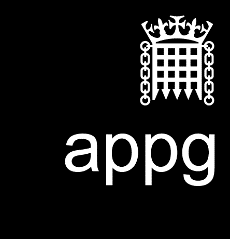
Chair: Lord Palmer
How energy is priced to consumers
Speakers: Richard Street, ICIS
Audrey Gallagher, Energy UK
Rachel Fletcher, Ofgem
Lord Palmer welcomes everyone to the 32nd meeting of the APPG on Energy Costs.
LP: Ofgem recently issued a report on customers various tariffs, LP says he does so often remember his father always saying that the important thing in life is to keep warm. Old people worry about eating or keeping warm. Ministers say way too many pay too much still. We could not have a better panel to address these questions. LP introduces the panel and asks the panel to keep to 7 minutes.
Richard Street
RS would like to thank the APPG for the opportunity to speak and gives an outline of his background working in the Industry.
RS believes he has a freedom of speech he has never had before, in the job he is doing now. He was on parental leave when he saw the headline of the Big 6 fiddling their profit margin on domestic energy tariffs and that Greg Clark is demanding an investigation made him reach for his laptop and google, he says the Sun article was largely incorrect.
Despite basic logic and twenty years of experience and knowledge following UK and world energy markets tells me it can’t be true, there is still a small part of me that wants it to be.
The Sun claims that based on some data out of a ‘secret’ Energy UK report written by PWC the Big 6 are making six to seven times the profit they claim.
Unfortunately, like most journalists that write about the energy markets, the Sun journalist clearly failed to bother to speak to anyone who knows anything about pricing and consumer contracts. Of course there is little incentive to do so when this would have killed the story. And characterising the Energy UK report as ‘secret’ when it is on the Energy UK website is just shoddy journalism.
Now I freely admit that I hadn’t read the PWC report before the Sun’s story but I obviously have now. What did it tell me? The biggest thing I took out of it was that they had used the Consolidated Segmented Statements for the cost of wholesale energy which (as it’s the price the Big 6 paid) rather than the market price and this could give a distorted view.
In the Industrial and Commercial Energy market it has been widely accepted for almost thirty years that supplier margin is separated from commodity prices by using market derived prices and not the price paid by the supplier. Why does this matter? Honestly, it probably doesn’t.
The difference between the two for most domestic customers will be largely irrelevant. But, as I set out at the beginning I’ve spent so long pointing out the mistakes or flaws in the approach of the Big 6 and Energy UK that I find it hard to stop.
Of course there is a simple answer (energy is a political football that hacks like to kick from time to time) and much more complex one.
The more complex and unpalatable truth is that the general public, politicians (including energy ministers) and even many people who work in the energy industry don’t really understand how it all works. And the very few people who do understand the full energy supply chain are inevitably conflicted by working the industry and representing people with some form of interest.
Even within the Big 6 there will be very few people who really understand how tariffs are set as so many things contribute to them: transportation rates, how energy is balanced, wholesale markets are traded, energy is metered, customer credit risk is calculated and internal supplier costs are calculated. For each supplier this will be different and can vary widely based on numerous parameters. Indeed, even in small suppliers where these factors may be more manageable and ‘knowable’ you would still expect different departments to be responsible for each of these elements.
And even if you were so clever as to know all of this, what you can never know is how much energy consumers will use in the next day, week, month, year. This takes modelling, judgement and a large dose of guesswork (and is especially a problem in mid winter when a sudden cold spell is likely to cause wholesale prices of energy to spike just as your customers are taking more energy). In the case of those customers highlighted by the Sun on variable tariffs (where they can leave at any point) a supplier has no idea whether the customer will take the energy or leave and if they do leave they have no idea if they will pay.
All of this leaves domestic suppliers in a situation where they are being told to simultaneously:
- Secure energy supplies (ie buy the energy in advance)
- Compete for customers by offering cheap prices
- Accept all customers whether you want them or not (domestic suppliers aren’t allowed to say no if the customer approaches them)
- Provide cheap energy tariffs to the ‘fuel poor’ and vulnerable customers (who are statistically more likely to fall into arrears)
- Support renewable energy (which is more expensive)
So yes, this will mean that some customers (those that shop around, pay by direct debit or are on a vulnerable scheme) will pay less. And yes it will mean that some others will have to pay more.
In fact, believe it or not, many of those customers that shop around regularly will be paying much less than the costs of the supplier. The same is true for many in one of the vulnerable or special categories (such as the current generation of prepay meters or those on a special renewable energy scheme).
So you may well be asking yourself at this point, if It’s all so difficult why would energy suppliers do all this. Why don’t they just simplify everything?
The answer is that they can’t. Past governments and regulators spent years tinkering and dreaming up new schemes and rules that the suppliers must follow. The ‘codes’ and ‘licence conditions’ that govern how suppliers must behave are so incredibly complex that there are teams of specialists at the Big 6 and Energy UK whose sole job it is to explain them.
Of course the Big 6 aren’t entirely blameless in all of this. They have individually or collectively lobbied for regulation where it suited them. They have done deals in the past with successive governments to allow energy ministers to announce schemes which tax payers would never agree to, while allowing governments to pretend that the costs wouldn’t get passed through to consumers. They milked the various environmental schemes and largely took it on the chin when politicians used them as a political punchbag.
Add in the mis-selling of the 90’s and 00’s and it is easy to see why, even if the Big 6 tell the truth, they won’t be trusted. Of course it doesn’t help that multiple versions of the truth are presented to those in charge of the markets by the various lobbyists and commentators who often have their own agendas.
And so, ultimately, we end up with a minister doing what is obvious and most politically expedient thing to do. Launch an investigation based on the word of a hack with a calculator and a fag packet.
The only countries you don’t see this is state owned utilities and state owned media, they tend not to have them. What we have is transparency, we have Ofgem and ICIS.
Before we say “oh isn’t this awful” we should look at it properly and say “actually when we compare we are not in such a bad situation”.
Lord Palmer thanks Richard Street and introduces Audrey Gallagher
Audrey Gallagher
AG thanks the APPG for asking her to speak at the meeting
AG says it is important that we have a constructive relationship with parliament. And welcomes this opportunity.
AG says Energy UK believe the effective competition that there is now puts downward pressure on price, and hopefully raises standards of service. Though consumer groups and politicians should work harder, so that they can influence public opinion and which in turn can have a positive response within the market. We need consumers to be active and engaged with the prices. AG says let’s look at the trends at the moment and see how we can work with them to aid consumers.
At present there are 40 different suppliers, with 5 million consumers that switched in 2016, more shockingly 40 % for first time ever. Yes the Big 6 still have 81.5% of the market but this is down from 96%. This is good thing from the consumers’ point of view.
Domestic customers are now receiving a better service which includes smart meters. The industry can no longer sit back and say “give us credit” they need to come forward and say “we are still here to help”. We need to do so much more.
There needs to be an open adult discussion about energy prices, everyone is interested in this as we all pay. And things aren’t going to get any easier in the future. In the last months of 2016 the differential between the cheapest and fixed rate was 15% higher than last year. We accept that the incentives offered are essential in 2016 to be able to offer a good service. We know we have a very dynamic market and things do change very quickly.
We recognise the industry has more work to do: we can’t do this alone we need to work with stakeholders to boost consumer confidence, and we need to encourage engagement! There has to be a stable policy to move forward.
Lord Palmer thanks Audrey Gallagher and introduces Rachel Fletcher.
Rachel Fletcher
Any discussion on energy prices has to start with the competition and how the competition is working – it has been the same for nearly 20 years.
On the first of April there will be a regulated price for those who are pre-pay customers in recognition that competition isn’t working well, this should protect them.
CMA findings have not been dented by the increase in supplier number. IF you are an active customer it works very well, but you will need to switch. If you are not one of those active customers you will not have seen some of the benefits ie the fall in the wholesale values of energy.
The 65% include the fuel poor and many older customers, and they aren’t switching because they are afraid to carry the cost of switching. They are paying more. Many things contribute to the rising costs of energy and why they pay more, at the moment the cost is 15% higher due to the cost of wholesale.
Government environmental schemes and social programmes also put the cost up.
The industry buy their fuel far in advance. Those customers on the standard tariff did not benefit when fuel was cheaper.
Looking to the future it is very obvious there is a deep public concern and it is even more understandable when you look at the CMA findings.
(Lords Division Bell – Lord Palmer excuses himself)
We must look more closely at customers as to when they use energy.
Q&A
Nick Greely
In the USA you don’t have a Compare the Market or a USwitch, it is just an illusion that competition works. The problem for the politicians is that energy is a human right, not an option, the tariffs are essentially untransparent. In USA the state regulator fixes the tariff. Why not here?
Richard Street
The reason USA don’t have those sites is you can’t switch. Same as China, they are regulated too. But we should know that the USA have the same kind of media articles saying their fuel is a rip off.
Caroline Flint MP
A lot of the transparency has had to be dragged out of the industry. CMA report was heartening that it confirmed that labour have been saying for years, loyal customers have been treated disgracefully. What has happened for the pensioners, those without internet access, those that believe they won’t get a better deal, those in poverty, there is so much complexity that prevents them from switching. It has to be made simpler. If we are going to have comparison sites why can’t there be one led by Ofgem/government?
Whilst conceding there is going to be a regulated price on pre-payment meters, nothing is being done for the loyal customers not on pre-payment meters – why not a default tariff, temp tariff, for the 65% - so that those will also see a benefit?
Rachel Fletcher
They did consider this in CMA and it was rejected, but one of the panel members disagreed and issued a minority report. It was a very good debate of 19 people. They felt it would just be easier for people to engage in the market, take on smart metering etc. Do they say it has been a terrible failure, if they move now to protect the 65% of the population? It will kill the competition, 30 of the new suppliers will disappear . . .
Caroline Flint MP
But they can buy the energy and compete for their business?
Rachael Fletcher
One of the things the CMA struggled to do was to find a way to make it temporary. It is a very live debate and one that they understand the public are very concerned about. It is a very complicated debate to have.
Lord Palmer
When last in USA had a teaching ref shale gas – how do you think shale gas industry is going to progress in the UK?
Richard Street
That is a huge question, shale is an interesting one, no one expected to see it boom as it did in the USA. The UK and the EU has this environmental issue with the excavation of shale, until we get over it then it will be a non-starter. We should watch Eastern Europe where they have regulations but have ways around them.
Damir Ahmovic
Carbon targets are through Government Supports – but we need to recognise that some customers like to know they are contributing to the green model of energy
Rachel Fletcher
If you are marketing your tariff as a green tariff you have to show that you are doing more than just the government demands. The green companies have to show 100% that their fuel is coming from renewable sources. You are highlighting a good thing. New suppliers coming in, some are new entities such as Local Authorities, which encourage customers to switch to local suppliers and encourages movement locally.
Caroline Flint MP
Rachel, are you saying that because the CMA didn’t recommend the tariff Ofgem can’t?
And secondly what work has Ofgem done showing smart meters will save money for the energy companies and how will that work itself back to the consumer?
Rachel Fletcher
It would be difficult for us to implement a price cap – having had a 2 year investigation that recommended we don’t do that. Though it is a live debate.
CMA says we need to do more to engage customers – we are trying – it is not going to change overnight. Large energy suppliers with ‘loyal’ customers need to think hard and the threat needs to be stronger of them leaving. WHICH have said that energy is in the Last Chance Saloon.
Smart Meters: there is still a positive value case for smart meters, the price will depend on competition and important completion works, but it will be an end to estimated bills. So far customer feedback is very positive.



